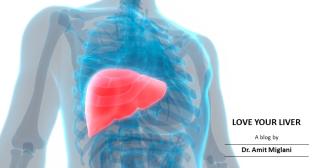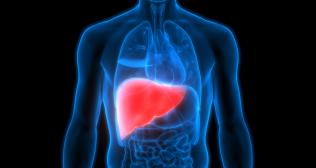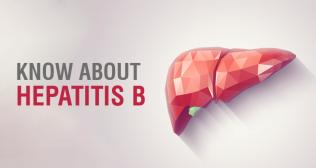
How to Treat Diarrhea: Effective Medication Options
Diarrhea affects people of all ages, causing discomfort and inconvenience. It can be acute, chronic, and traveler’s, depending on the duration and cause. While typically not serious, severe cases can lead to dehydration, electrolyte imbalances, and other complications. Prompt management is critical to minimizing risks and promoting recovery.
Multiple factors can trigger diarrhea, and understanding the diverse causes of diarrhea is essential for effective management and prevention.
Causes of Diarrhea
- Infections: Viruses, bacteria, and parasites can infect the gastrointestinal tract, leading to diarrhea.
- Food Poisoning: Consumption of contaminated food or water containing toxins from bacteria can cause diarrhea.
- Food Intolerance: Some individuals may experience diarrhea due to intolerance to certain foods, such as lactose intolerance or sensitivity to gluten.
- Medications: Certain medications, especially antibiotics, can disrupt the balance of gut bacteria, causing diarrhea as a side effect.
- Digestive Disorders: Conditions like inflammatory bowel disease (IBD), celiac disease, and irritable bowel syndrome (IBS) can lead to chronic diarrhea.
Symptoms of Diarrhea
The symptoms include:
- Loose or watery stools
- Abdominal cramps
- Nausea and vomiting
- Fever
- Dehydration due to excessive fluid loss
Medicine to Stop Diarrhea
Dealing with diarrhea prompts individuals to seek effective relief solutions. While lifestyle modifications and home remedies significantly manage diarrhea, certain medicines can relieve and aid recovery. They include:
- Antidiarrheal Medications:
- Loperamide: Loperamide is a widely used over-the-counter medicine to stop diarrhea in adults. It works by slowing down the movement of the intestines, allowing for increased absorption of water and electrolytes, thus reducing stool frequency and consistency. Loperamide is effective for acute diarrhea but should be used cautiously in cases of infectious diarrhea, as it may prolong the duration of the infection.
- Bismuth Subsalicylate: It has antimicrobial and anti-inflammatory properties, helping alleviate symptoms such as abdominal cramping and discomfort. Additionally, bismuth subsalicylate can help reduce the frequency of loose stools. However, individuals with aspirin allergies or those taking blood-thinning medications should avoid this medicine.
- Antibiotics: Antibiotics are prescribed for bacterial diarrhea to target the underlying infection. Commonly prescribed antibiotics include ciprofloxacin, azithromycin, and rifaximin, depending on the pathogen involved. Antibiotics are typically reserved for severe or persistent cases of bacterial diarrhea and should be used under the guidance of a healthcare professional to prevent antibiotic resistance and adverse effects.
- Probiotics: Probiotics are beneficial bacteria that promote gut health and may help restore the balance of intestinal flora disrupted by diarrhea. They can be found in dietary supplements or naturally in fermented foods. Probiotics have been shown to reduce the duration and severity of infectious diarrhea, particularly in children, and may also help prevent antibiotic-associated diarrhea.
- Oral Rehydration Solutions (ORS): ORS are specially formulated solutions containing a precise balance of electrolytes and glucose to help replace lost fluids and electrolytes during diarrhea. They are recommended for individuals at risk of dehydration, such as infants, young children, and older adults. Proper hydration is crucial in managing diarrhea and preventing complications.
- Additional Measures: These may be taken to address specific symptoms associated with diarrhea. For example, antiemetic medications might alleviate nausea and vomiting, while antispasmodic drugs may help relieve abdominal cramps and discomfort.
- Medicines for the Management of Underlying Conditions: If diarrhea is caused by an underlying medical condition, such as irritable bowel syndrome (IBS), inflammatory bowel disease (IBD), or food intolerance, management of the underlying condition is essential for long-term symptom control. This may involve dietary modifications, lifestyle changes, stress management techniques, and medications tailored to the specific condition.
Home Remedies for Diarrhea
Home remedies for diarrhea can effectively alleviate mild cases and promote recovery. They include:
- Drinking plenty of fluids, such as water, broth, herbal teas, and clear soups
- Opting for bland, easily digestible foods, like the BRAT diet, plain crackers, boiled potatoes, steamed white rice, and cooked carrots
- Including natural probiotics, such as yogurt, kefir, sauerkraut, kimchi, and kombucha, in the diet
- Using ginger, which has natural anti-inflammatory and antimicrobial properties that can help soothe the digestive system and alleviate symptoms of diarrhea
- Consuming apple cider vinegar, which has antimicrobial properties and may help rebalance the pH of the digestive tract
- Using rice water, the starchy water left over after cooking rice, as it can help soothe the digestive system and provide a source of hydration
Additionally, practicing good hygiene, including frequent handwashing, and taking preventive measures, such as food safety precautions, can help reduce the risk of diarrhea and its associated complications.
Popular Searches :
Hospitals: Cancer Hospital in Delhi | Best Heart Hospital in Delhi | Hospital in Amritsar | Hospital in Ludhiana | Hospitals in Mohali | Hospital in Faridabad | Hospitals in Gurgaon | Best Hospital in Jaipur | Hospitals in Greater Noida | Hospitals in Noida | Best Kidney Hospital in Kolkata | Best Hospital in Kolkata | Hospitals in Rajajinagar Bangalore | Hospitals in Richmond Road Bangalore | Hospitals in Nagarbhavi Bangalore | Hospital in Kalyan West | Hospitals in Mulund | Best Hospital in India | | Cardiology Hospital in India | Best Cancer Hospital in India | Best Cardiology Hospital in India | Best Oncology Hospital In India | Best Cancer Hospital in Delhi | Best Liver Transplant Hospital in India
Doctors: Dr. Rana Patir | Dr. Rajesh Benny | Dr. Rahul Bhargava | Dr. Jayant Arora | Dr. Anoop Misra | Dr. Manu Tiwari | Dr. Praveer Agarwal | Dr. Arup Ratan Dutta | Dr. Meenakshi Ahuja | Dr. Anoop Jhurani | Dr. Shivaji Basu | Dr. Subhash Jangid | Dr. Atul Mathur | Dr. Gurinder Bedi | Dr. Monika Wadhawan | Dr. Debasis Datta | Dr. Shrinivas Narayan | Dr. Praveen Gupta | Dr. Nitin Jha | Dr. Raghu Nagaraj | Dr. Ashok Seth | Dr. Sandeep Vaishya | Dr. Atul Mishra | Dr. Z S Meharwal | Dr. Ajay Bhalla | Dr. Atul Kumar Mittal | Dr. Arvind Kumar Khurana | Dr. Narayan Hulse | Dr. Samir Parikh | Dr. Amit Javed | Dr. Narayan Banerjee | Dr. Bimlesh Dhar Pandey | Dr. Arghya Chattopadhyay | Dr. G.R. Vijay Kumar | Dr Ashok Gupta | Dr. Gourdas Choudhuri | Dr. Sushrut Singh | Dr. N.C. Krishnamani | Dr. Atampreet Singh | Dr. Vivek Jawali | Dr. Sanjeev Gulati | Dr. Amite Pankaj Aggarwal | Dr. Ajay Kaul | Dr. Sunita Varma | Dr. Manoj Kumar Goel | Dr. R Muralidharan | Dr. Sushmita Roychowdhury | Dr. T.S. MAHANT | Dr. UDIPTA RAY | Dr. Aparna Jaswal | Dr. Ravul Jindal | Dr. Savyasachi Saxena | Dr. Ajay Kumar Kriplani | Dr. Nitesh Rohatgi | Dr. Anupam Jindal |
Specialities: Heart Lung Transplant | Orthopedic | Cardiology Interventional | Obstetrics & Gynaecology | Onco Radiation | Neurosurgery | Interventional Cardiology | Gastroenterologist in Jaipur | Neuro Physician | Gynecologist in Kolkata | Best Neurologist in India | Liver Transfer |



















